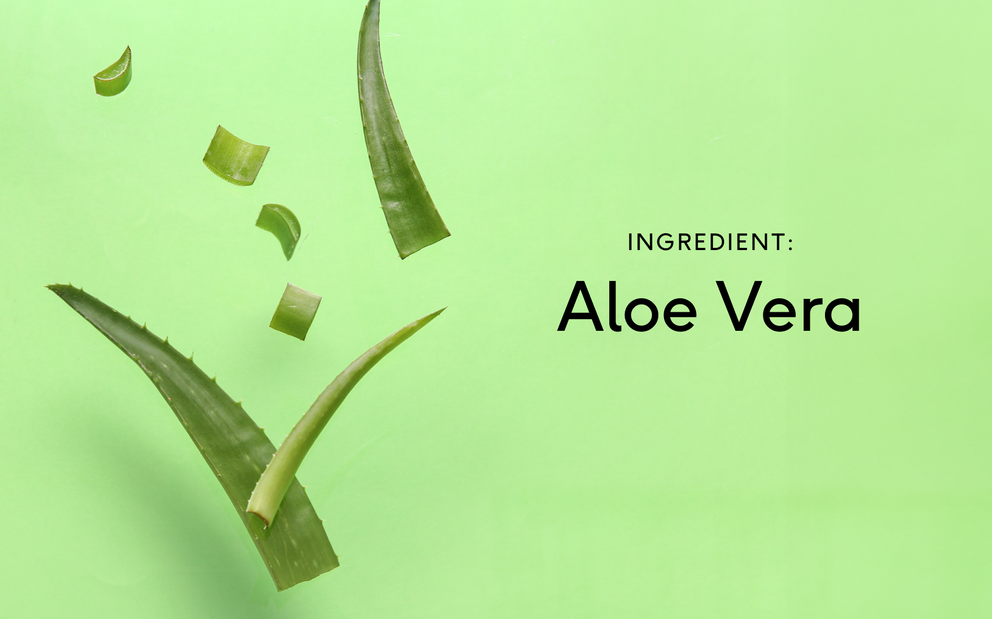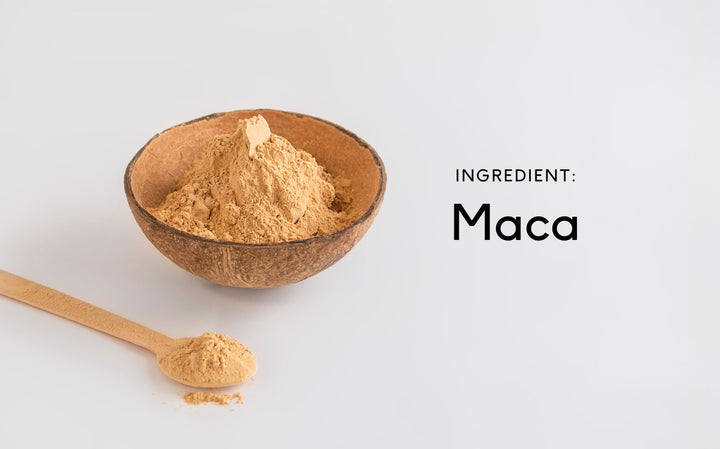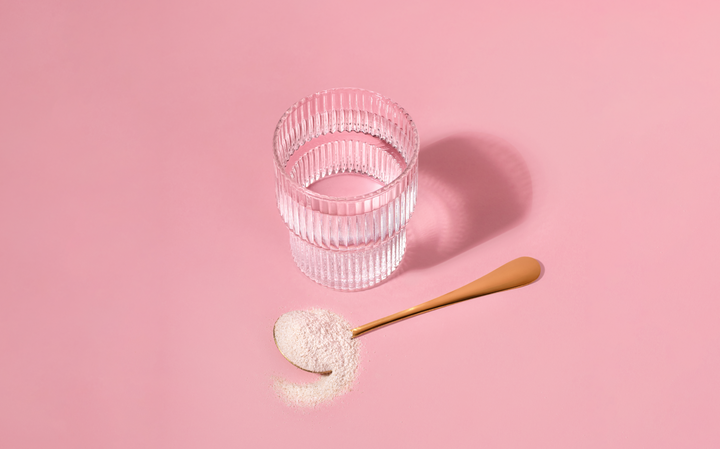Learn About Aloe Vera in 5 Minutes
Table of contents

What is Aloe vera?
Native to the Middle East, Aloe vera (aloe) is a perennial plant that thrives in both tropical and arid climates. The juice contained in the leaves of this plant has been used for centuries as a healing substance, and in the last few decades, Western science has uncovered a variety of scientifically-backed benefits of aloe. When dried and powdered, aloe extract can be taken orally, and this ingestion method may provide antioxidant, cardiovascular, immune, and other benefits.
Is aloe water-soluble or fat-soluble?
The components in aloe are water-soluble, which means that they dissolve in your body’s abundant aqueous fluids.
Where can aloe be found naturally? Common sources of aloe vera:
The only known source of the beneficial components of aloe is the Aloe vera plant itself.
What is the recommended daily value for aloe?
While it appears to be highly beneficial to human health, Aloe vera is not recognised as an essential nutrient. As a result, there is no nutrient reference value (NRV) for this substance.
Can you absorb enough aloe from food?
The only food source of Aloe vera is aloe juice, which is not as concentrated as Aloe vera extract. Unless you make a point to drink a large quantity of aloe juice every day, it is impossible to absorb beneficial quantities of this substance from food.
Why is aloe necessary for your body?
While it is primarily used as a topical substance for wound healing, Aloe vera appears to have quite a few beneficial properties when concentrated in extract form and ingested orally. For instance, aloe contains components that are generally regarded as antioxidants, and certain studies also suggest that Aloe vera may be beneficial for diabetics, people who are immunocompromised, and individuals who have digestive disorders.
Functions of Aloe vera
- Potential antioxidant benefits: Aloe vera contains high concentrations of vitamin C, which is widely regarded as one of the world’s most potent natural antioxidants. Aloe also contains alkaloids, indoles, and polyphenols, which also appear to have antioxidant properties.
- Potential blood sugar benefits: Multiple clinical studies have indicated that orally ingested aloe has the potential to reduce blood sugar and improve insulin sensitivity in patients with type 2 diabetes.
- Potential wound-healing benefits: Aloe vera is commonly used topically to heal wounds, but evidence suggests that the same substances responsible for aloe’s purported topical wound-healing benefits are just as active in the body when orally ingested.
- Potential immune benefits: One particular compound in Aloe vera, alprogen, appears to improve immunity by stopping the movement of calcium into mast cells.
- Potential digestive benefits: Oral aloe products are commonly used for constipation relief, and some evidence suggests that extracts of this plant may provide gentle natural laxative benefits.
Aloe vera is a superstar ingredient for supporting dry skin, which is why we've included 100mg of Aloe vera in Feel Beauty Probiotic+.
When should you take aloe?
Aloe vera extract appears to have powerful healing benefits that could improve your well-being no matter what your health status may be. Taking aloe orally could be useful in the case of vitamin C deficiency, and since aloe extract contains many substances that are generally regarded as antioxidants, there’s never a bad time to ingest Aloe vera.
How long do you need to take aloe to start experiencing its benefits?
The active ingredients in aloe are water-soluble, which means that aloe extract should start taking effect within 2-3 days. Repeated supplementation with aloe extract is necessary, however, to experience the best results.
Consistency is key and our research recommends taking your Feel supplements for at least 3 months to allow your body to adjust and provide you with the desired benefits.
How long does it take for your body to digest/absorb aloe?
Since aloe vera extract is water-soluble, it should only take your body around 24 hours to process and absorb this beneficial supplement.
How long does aloe stay in your body after you take it?
Like all water-soluble compounds, the active ingredients in Aloe vera extract will generally make their way out of your body within 1-3 days.
Is Aloe vera an antioxidant?
Research indicates that Aloe vera extract contains a large variety of components that are widely believed to exert antioxidant activity in the body.
Can you overdose on aloe? What are the effects?
Based on scientific research, there is reason to believe that taking large doses of aloe latex, a component of aloe leaves, could cause adverse effects. The most commonly noted adverse effects of aloe latex overdose include liver damage and reduced platelet formation, although this can usually only occur from supplementing with absurdly large doses.
Does aloe dissolve, flush out, or build up in the body?
Since it contains water-soluble compounds, Aloe vera generally flushes out of your body within a few days without leaving any build-up behind.
Can you take aloe during a diet?
Aloe is a natural, plant-based substance, so it does not conflict with any dietary restrictions.
Are there synthetic forms of aloe?
While certain substances in aloe have been isolated and semi-synthesised, there are no synthetic alternatives to aloe extract itself, which contains the full spectrum of components present in Aloe vera leaves.
Absorption rate of synthetic aloe
No data exist on the potential absorption rates of synthetic forms of aloe vera.
Why might natural forms of Aloe vera be better?
There is no reason to believe that synthetic forms of aloe might have advantages over natural forms—especially since aloe extract can’t be fully replicated in a laboratory.
How to take aloe
When taken orally, aloe is usually ingested in juice or powdered extract form. Aloe juice can also be applied topically to aid wound and irritation healing.
Aloe vera trends in medicine
A 2020 review of the evidence covers a variety of different aloe studies conducted over the last six years, and the authors conclude that evidence is amassing indicating that Aloe vera might be incredibly useful for improving digestive health and fighting against bacterial infections. Also this year, a German study found that components in Aloe vera improve insulin permeability through intestinal tissues, which supports the idea that this ancient healing substance could be useful for diabetes.
Sources
1. Systematic Review of Herbs and Dietary Supplements for Glycemic Control in Diabetes
2. Studies of Aloe. V. Mechanism of Cathartic Effect
3. Effect of Aloe Vera Leaves on Blood Glucose Level in Type I and Type II Diabetic Rat Models
4. Antidiabetic Activity of Aloe Vera L. Juice. I. Clinical Trial in New Cases of Diabetes Mellitus
5. Antibacterial activities and antioxidant capacity of Aloe vera
6. Inhibitory Mechanism of Aloe Single Component (Alprogen) on Mediator Release in Guinea Pig Lung Mast Cells Activated With Specific Antigen-Antibody Reactions
7. The Effect of Aloe Vera Clinical Trials on Prevention and Healing of Skin Wound: A Systematic Review
8. Aloe vera: A review of toxicity and adverse clinical effects




















































 Back
Back





